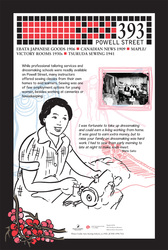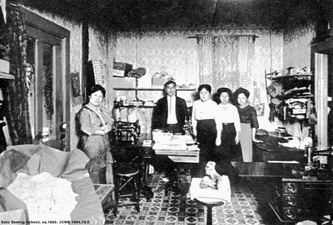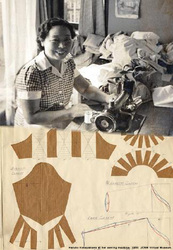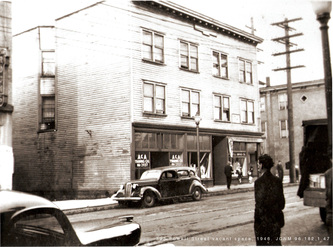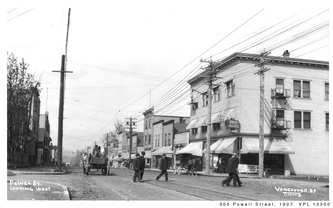393 Powell Street
EBATA JAPANESE GOODS 1906 | CANADIAN NEWS 1909 | MAPLE/VICTORY ROOMS 1930s | TSURUDA SEWING 1941
While professional tailoring services and dressmaking schools were readily available on Powell Street, many instructors offered sewing classes from their own homes to avid learners. Sewing was one of few employment options for young women, besides working at canneries or housekeeping.
"I was fortunate to take up dressmaking and could earn a living working from home. It was good to earn extra money, but to raise your family on dressmaking was hard work. I had to sew from early morning to late at night to make ends meet." - Marie Saito
While professional tailoring services and dressmaking schools were readily available on Powell Street, many instructors offered sewing classes from their own homes to avid learners. Sewing was one of few employment options for young women, besides working at canneries or housekeeping.
"I was fortunate to take up dressmaking and could earn a living working from home. It was good to earn extra money, but to raise your family on dressmaking was hard work. I had to sew from early morning to late at night to make ends meet." - Marie Saito
Artist Comments and Additional Information
In the panel a young woman is illustrated sewing at her table, while in the background an image from the past shows a typical sewing class taking place in the living room of a home. Many young Japanese Canadian women sought employment as seamstresses along Powell Street and attended sewing classes from people’s homes or their shops. Shops such as the Tsuruda Singer Sewing Machine Store was a popular place to get sewing supplies in order to sustain this long standing tradition of craft and skill that was also carried on as a means of survival as several women sewed and mended their own clothing during the internment.
For more archival photos, visit The National Nikkei Museum and Heritage Centre's virtual museum: Our Mothers' Patterns
